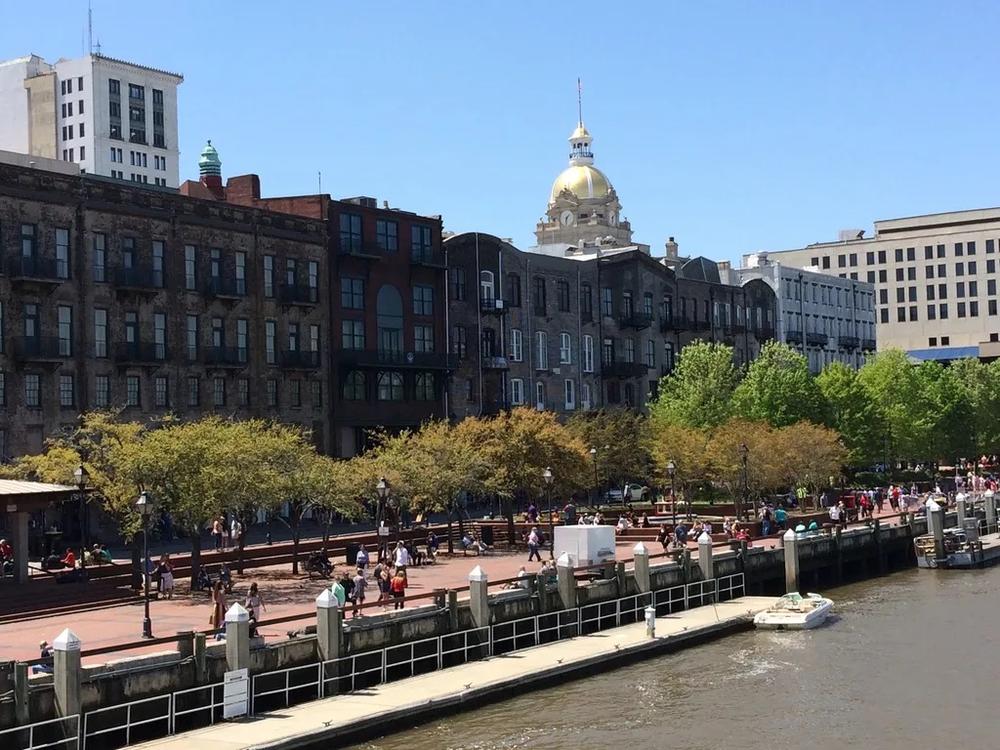
Section Branding
Header Content
Savannah lawmakers push River Street, Garden City during special session
Primary Content

Craig Nelson, The Current
When Gov. Brian Kemp ordered the state legislature in late October to convene in a special session to redraw Georgia’s voting maps, he was careful to limit its agenda.
He’d already rejected calls to convene special sessions to throw out Georgia’s voting machines ahead of next year’s elections and to investigate and possibly impeach Fulton County prosecutor Fani Willis for indicting former President Donald Trump.
But tucked into the proclamation was a provision allowing lawmakers to “enact, revise, repeal or amend local laws” that if delayed until the regularly scheduled session in January, would cause “undue hardship” or “undue impairment” of “public functions.”
A group of state lawmakers from Coastal Georgia wasted no time in taking advantage of that clause in the governor’s summons to Atlanta.
Instead of waiting for the regular legislative session to begin the second week of January, they introduced a bill last week that would advance the creation of a special development zone on Savannah’s waterfront.
They also proposed legislation that would stage for the expansion of Garden City into unincorporated sections of Chatham County — a measure that, if approved, could expand the city’s area and population by as much as half, according to state Rep. Carl Gilliard, a Democrat from Savannah and a co-sponsor of both bills.
It was an opportune moment to introduce the bills because “we knew the governor was looking at ways” like extension of the moratorium on the state fuel tax to bring economic relief and encourage development, Gilliard said.
‘Accelerate opportunities’
The Savannah City Council approved the plan for the establishment of the so-called “community improvement district” in June.
Legalized in Georgia in 1985, such districts allow commercial and industrial property owners in a designated neighborhood to levy an additional tax on themselves, which they then can use for public improvement projects and to attract matching local, state, and federal funds. The districts are governed by a board directors composed of elected property owners and city or county government appointees.
The proposed community improvement district for Savannah’s waterfront would stretch from Plant Riverside on the west to the Marriott Savannah Riverfront on the east and from River Street on the north to Bay Street on the south.
The legislation introduced last week and co-sponsored by Reps. Ron Stephens, Edna Jackson, Carl Gilliard, and Anne Allen Westbrook of Savannah and Bill Hitchens of Rincon would amend existing state law to spell out the size and composition of the waterfront district’s board of directors and its voting rules. It also delineates the board’s authority in relation to the city.
In urging other city council members to support the waterfront plan in June, Mayor Van Johnson said the proposed district could “accelerate opportunities along our waterfront.”
Together with the 2% increase in the city’s hotel and motel tax, which went into effect Sept. 1, such a district could “accelerate opportunities along our waterfront,” he said.
“We’re talking about increased lighting, increased security cameras, beautification, graffiti removal, clean teams, etc.,” added city manager Jay Melder who, under the current plan, would appoint one member of the seven-member board while the city council would name another.
Authority to allocate the additional funds would rest with the board of directors, but Johnson insisted that the creation of the waterfront improvement district “in no way limits the authority of the city of Savannah to provide services and the city remains in complete control over city owned facilities and properties within the district.”
Initiative from Garden City officials
The same five lawmakers — Republicans Stephens and Hitchens and Democrats Jackson, Gilliard, and Westbrook — also introduced the bill that would amend Garden City’s 1973 charter, allowing it to expand the city’s limits to include previously unincorporated areas of Chatham County.
Gilliard, whose District 162 covers Garden City, said the initiative for the bill came from Garden City officials seeking to manage explosive economic and population growth amid stiff competition from surrounding municipalities.
The officials see annexation as part of “an opportunity to serve unincorporated areas” beyond the city’s current borders,” he said.
The legislation calls for a referendum next November in which voters in those areas proposed for inclusion in Garden City could vote on the plan.
This story comes to GPB through a reporting partnership with The Current.


